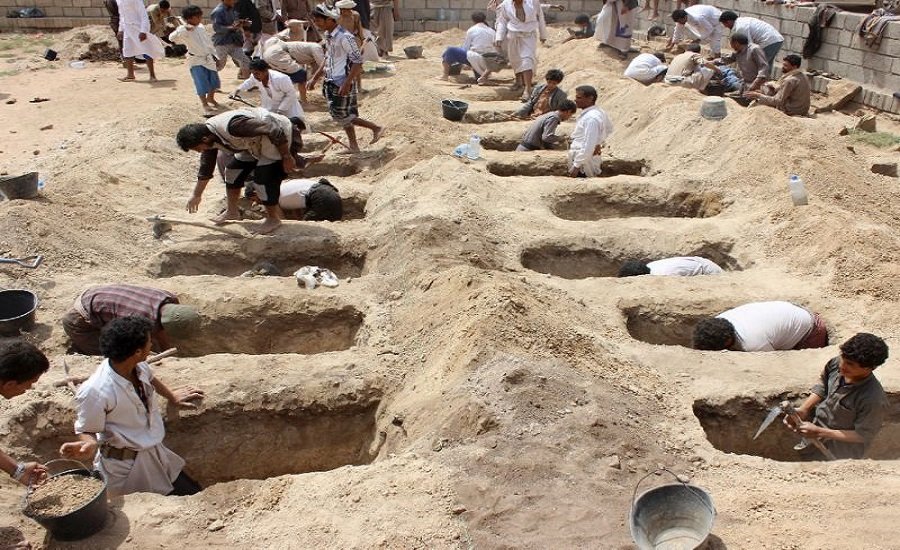
The bombing on a crowded market in part of northern Yemen held by Huthi rebels killed a total of 51 people, according to the Red Cross.
Fifty-six children were also among the 79 people wounded in the August 9 strike on Saada province, a stronghold of the Iran-backed Huthis bordering Saudi Arabia.
The incident sparked a wave of international anger and calls by the United Nations Security Council for a “credible and transparent” investigation.
Coalition spokesman Mansour al-Mansour said a coalition probe had found that errors were made prior to the strike, and called for those responsible to be “punished”.
He told a press conference in Riyadh that “an order had been given not to target the bus, which was among civilians, but the order arrived late”.
Another error was that “the target did not pose an immediate threat and that targeting the bus in a residential area was unjustified at that time,” he said.
The coalition had claimed to have targeted a bus carrying rebels.
Mansour repeated Saturday that the bus had been “transporting Huthi leaders” according to information from intelligence services.
But Mansour admitted the strike had “caused collateral damage”.
The coalition has been accused of committing numerous blunders in Yemen.
It has recognised some of them, but regularly accuses Huthis of hiding among civilians or using them as human shields.
The Saudi-led coalition intervened in Yemen in March 2015 after the Huthis ousted President Abedrabbo Mansour Hadi’s government from the capital Sanaa and seized swathes of the country.

